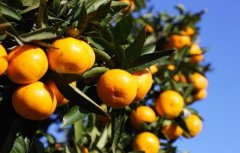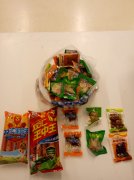What does rational fertilization mean? What is the significance of rational fertilization?
What should be done to rationalize fertilization? Do you know? Don't apply fertilizer indiscriminately, waste fertilizer, and can't make the crops absorb properly. So let's take a look.
For a long time, under the public fertilizer production and marketing system, in order to reduce the burden of farmers, the policy of low fertilizer price has been adopted, especially since the mid-1970s, fertilizer resources are abundant, private fertilizers participate in the competition in the market, and farmers can choose to buy fertilizer freely. In addition, due to labor shortage and high wages in rural areas, in order to save fertilizer wages, superficial application and a few times and a large amount of fertilizer, resulting in high fertilizer use and waste, but also has a negative impact on environmental maintenance, causing widespread concern among the public.

In order to reduce farmers' fertilization costs, the government promotes rational fertilization measures at the technical level, educates and publicizes farmers to apply fertilizer reasonably according to the fertilizer application amount and methods recommended by agro-technical units' fertilizer diagnostic services, reduce the waste of fertilization in order to curb the increase in fertilizer prices. According to the experimental and demonstration results of various agricultural experimental improvement sites for many years, fertilization according to the recommended amount of fertilizer diagnosis has no effect on yield and quality, and even has the benefit of increasing yield or improving quality.
Crops absorb more or less various nutrient elements from the soil, and the ones that need more are nitrogen, phosphorus and potassium, which are called three elements. Because the three factors affect crop production and product quality, and also account for the largest part of the cost of fertilization, therefore, the application amount, application methods and types of fertilizers are important topics in crop fertilizer management. Generally speaking, short-term crops can recommend fertilizer elements according to soil analysis and determination, while long-term crops still need plant (leaf) analysis and diagnosis to recommend reasonable fertilizer application.
Silicon, magnesium and calcium, which are less required, are often selectively used because of crop and soil characteristics. According to the results of soil response test, the use of calcium and magnesium lime is very important in acidic soil, but some acidophilic crops such as tea and pineapple do not need to be used except in very strong acidic soil (pH value below 4.5), while acid paddy fields need to use silicon-containing fertilizer, such as silicic acid slag, etc.
Very small amounts of iron, manganese, copper, zinc, molybdenum and boron are "trace elements". The content in general soil should be fully supplied, but there may be a lack of local and regional trace elements. once the lack of certain elements affects the growth and yield to the greatest extent, the use of such trace elements can not be ignored, but the lack of trace elements can only be applied according to their symptoms, analysis and diagnosis, and can not be applied arbitrarily. To avoid poisoning or contaminating the soil.
Whether or not various elements are needed and how much they are used depends on soil analysis and the application of plant (leaf) nutrition diagnosis technology. agricultural experimental improvement sites and other agricultural academic institutions in various regions have done a lot of related experimental research over the years. Establish information such as the concentration of different elements of various crops as a basis for crop fertilizer diagnostic services to recommend fertilization.
Fertilization is an effective method to improve the yield and quality of agricultural products, but the type, dosage and use of fertilizers should be recommended in accordance with crop types, cultivation management and other scientific diagnostic techniques in order to achieve the purpose of fertilization. it can also reduce the impact on the environment. Therefore, rational fertilization is to "haggle over everything" in the use of fertilizer, rather than "asking for 50 cents and giving one piece".

- Prev

The citrus variety welfare mandarin, how to do the citrus cultivation and management techniques?
Only by mastering the time and proportion of fruit thinning can we grow good fruits and vegetables. The welfare mandarin is big and beautiful, so what should we pay attention to when it is planted in order to plant it well? The weather is getting cooler, and when it comes to the citrus season, experienced gluttons begin to be on the market.
- Next

The latest development of African classical swine fever: peach machine passengers bring meat into the country and then detect African classical swine fever.
Chinese tourists illegally brought into ham sausages from Nanjing, China, and tested positive for African classical swine fever virus. Is this true? The Animal and Plant Disease Prevention and Quarantine Bureau said today (10) that two cases of African classical swine fever virus genes were detected again in Chinese pork products brought into the country by peach machine passengers. Prevention and inspection bureau
Related
- A one-day flower show brings 130 million yuan in orders! Nanhai, this Phalaenopsis exhibition is amazing
- What do the flower language and meaning of Lutheran tree mean? Precautions for planting Lutheran tree
- Encounter Chaoshan Kongfu tea, not without this cup of Phoenix single clump
- The durian market in Vietnam and Thailand is flooded. The price of imported durian has plummeted by 30-40% in a month.
- Shanghai solved the problem of local vegetable supply by planting 80,000 mu of green leafy vegetables.
- Wageningen University has become the best agricultural university in the world for the seventh time in a row.
- The strongest export season of South African grapes is full of challenges, with exports to Russia falling sharply by 21%.
- Sri Lanka is on the verge of bankruptcy, "Tea for debt" Organic Agriculture Revolution aggravates the Food crisis?
- Turning waste into earthworm manure and worm manure into organic fertilizer-A new choice for auxiliary farming
- Organic rice growers shoulder the responsibility of nurturing agricultural talents! Yinchuan Sustainable Farm with Organic Life Camp

